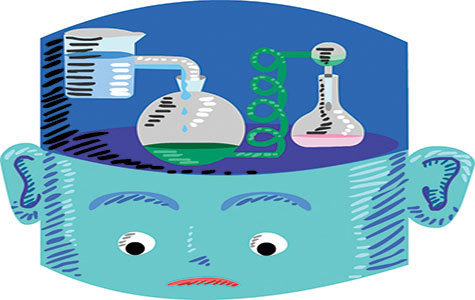Treatments take time, compassion
Approaching mental illness as a hard-to-treat physical illness

Treating mental illness takes time, compassion.
October 15, 2014
Growing up with a mental illness, my parents always told me that there was no difference between it and a physical illness. If I had diabetes, they said, and my body could not create the chemical needed to use sugar, I would need medical treatment. There was no need to be ashamed. I would treat it, work the treatment into my daily routine, and live my life.
Living with a mental illness has not been that simple.
Although a chemical imbalance within the brain is thought to be one cause of mental illness, these chemicals cannot be tested as easily as, say, blood sugar. No laboratory tests exist to effectively diagnose mental illness, according to the entry on mental illness on WebMD.com. Instead, doctors use psychological interviews and assessments to diagnose patients.
Medication and therapies are available to treat mental illness. But, testing the effectiveness of these is often as subjective as the initial diagnosis. In my treatment for depression, I have blood drawn to see if the prescribed amount of medication is actually in my body. Other than that, it is up to me to tell the doctor when I feel better.
But feeling better can be hard to judge. Everyone has good and bad days. If a mental illness is treated successfully it does not mean the person will never feel sad, anxious, giddy, etc. again. These feelings are a part of life and they can sometimes mask the benefits or lack of benefits of a certain treatment.
Because finding the right treatment for mental illness can take time, symptoms may persist longer than those of physical illness. If I were to have one common cold that lasted years on end, I am sure people would be sick of me saying, “I don’t feel well.”
When mental illness goes on and on, it feels silly to keep complaining about it. Sometimes, when I’m really gutsy, I say I’m feeling under the weather. But that get’s old, too.
Not talking about mental illness can add feelings of isolation and being different into the mix. It can feel very shameful. It can add to the stigma that someone of stronger character could simply pull her or himself together and beat this.
If my parents were incorrect about how clear-cut my road to recovery would be, they were spot-on regarding not needing to be ashamed.
Genetic, biological, psychological, and environmental factors all play a role in mental illness. One’s personal weakness does not have a role, according to the article “Mental Illness Basics,” on medicinenet.com. The article states in part, “recovery from a mental illness is not simply a matter of will or self-discipline.”
What would you tell people if you had a cold that lasted a year? Although you might share unpleasant details with family and friends, you might tell most people you simply had a cold. What would you want people to say back? Would a simple “hope you feel better” or “sorry to hear that” be enough?
Mental illness really should carry no more weight than a hard-to-treat physical illness.
“My depression is hitting hard today.”
“Sorry to hear that – anything I can help with?”
An approach like this could make a big difference.






























